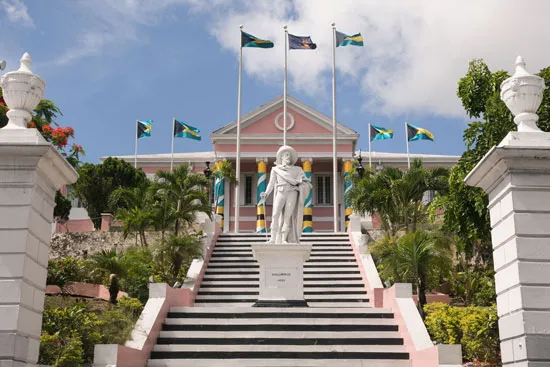jacksondwj.com – The Bahamas, officially known as the Commonwealth of The Bahamas, is an archipelagic state in the West Indies in the Atlantic Ocean, north of Cuba and Hispaniola. It consists of 700 islands and over 2,000 rocks and cays, sprinkled over 100,000 square miles of ocean. The country’s political structure and governance are shaped by its history, geography, and the aspirations of its people.
Constitution and Government Type
The Bahamas operates under a constitutional monarchy and a parliamentary democracy. The country gained independence from the United Kingdom on July 10, 1973, and Queen Elizabeth II is recognized as the head of state, represented locally by a Governor-General. The Governor-General is appointed by the monarch on the advice of the Prime Minister of The Bahamas.
Executive Branch
The executive branch is led by the Prime Minister, who is the head of government. The Prime Minister is typically the leader of the majority party in the House of Assembly, the lower chamber of the Bahamian Parliament. The Cabinet, which is appointed by the Governor-General on the advice of the Prime Minister, assists in the governance of the country.
Legislative Branch
The bicameral Parliament of The Bahamas consists of the Senate and the House of Assembly. The Senate is the upper chamber and comprises 16 members appointed by the Governor-General. Nine of these members are appointed on the advice of the Prime Minister, four on the advice of the Leader of the Opposition, and three after consultation with both the Prime Minister and the Leader of the Opposition.
The House of Assembly is the lower chamber and is directly elected by the Bahamian people. It currently has 39 seats, with members serving five-year terms. The party that wins the majority of seats in the House of Assembly forms the government.
Judicial Branch
The judicial branch in The Bahamas is independent of the executive and legislative branches. The Supreme Court is the highest court in the country and consists of a Chief Justice and several puisne judges. The Court of Appeal is the final appellate court, with its decisions being final unless the case is taken to the Judicial Committee of the Privy Council in the United Kingdom.
Political Parties
The Bahamas has a two-party system, with the Progressive Liberal Party (PLP) and the Free National Movement (FNM) being the two dominant political parties. These parties have alternated in power since the country’s independence.
Local Government
Local governance in The Bahamas is administered through local government districts, each with its own council. These councils are responsible for local matters such as sanitation, parks, playgrounds, cemeteries, and local roads.
Challenges and Reforms
The Bahamas faces several challenges in its governance, including corruption, economic disparities, and environmental sustainability. The government has been working on reforms to strengthen institutions, improve transparency, and ensure sustainable development.
In conclusion, The Bahamas’ political structure and governance are characterized by a constitutional monarchy, a parliamentary democracy, and a two-party system. The country’s governance is designed to balance the powers of the executive, legislative, and judicial branches, while also addressing the unique challenges of governing an archipelagic state.
